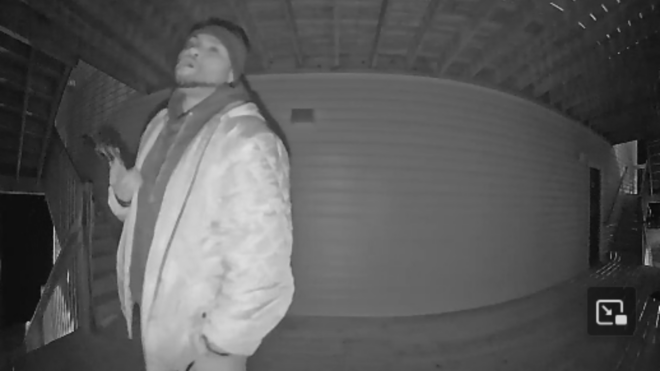
TRIGGER WARNING: This post contains information about stillbirth and infant loss, which may be triggering to some.
Police are investigating the death of a newborn baby found in an abandoned home in Falmouth, Kentucky. The infant was discovered after a woman went to an area hospital on March 1, saying she had a miscarriage. Hospital personnel became suspicious of her story and called police. She led them to the infant’s body at a house in Pendleton County.
While nurses from Harrison Memorial Hospital cared for the mother, they began to question the miscarriage and whether the baby may have had a viable birth. According to WCPO, police found an unresponsive baby boy weighing about 6 lbs. inside the abandoned house. He was immediately taken to the hospital, where he was pronounced dead. Police say they are not looking for a suspect in the child’s death.
The newborn's death is under investigation.
Falmouth Police Chief Marty Hart said police are working with the infant’s mother to determine the circumstances regarding the child’s birth and whether he was stillborn, WCPO reported. If that is the case, Hart will not press charges.
“We’re not actively looking for anybody. We’re aware who the mother is and the baby was taken to the Kentucky Medical Examiner for an autopsy,” Hart said. “We’re working with the state and my agency just to determine if a crime was committed. As of right now, there’s no reason to believe there was.”
It’s expected to take a few weeks for the medical examiner’s preliminary report to be done.
There had been little activity in the house recently.
A neighbor, Charlotte Hamilton, spoke with Fox 19 and said she hadn’t seen anyone in the house for the past several weeks. “Other than the people that are working on it, because they’re doing repairs to the house,” she explained.
Falmouth Volunteer Fire Department Second Assistant Chief Travis Reis got the call about the abandoned infant and realized it was nearby. The father of five rushed to the home.
“The things that get me through calls like that, or calls that involve younger children or anything like that is they’re in a whole lot better place than us,” he said per Fox 19. “I mean, look at the crazy world we’re living in.”
Neighbors are struggling with the discovery.
Rachel Alford was simultaneously shaken and angered by the news. “I about cried then and I’m about to cry now,” Alford told Fox 19. “Makes me mad, because there’re people out there dying to have a baby, and then a baby dies because somebody does something stupid like that. I mean I don’t get it.”
Another neighbor, who wished to remain anonymous, empathized with the mother and shared that even though she may have a strong support system, having a baby is difficult.
“Even then I was still afraid,” she said. “I was alone, because you don’t want to share yourself. Everyone thinks, ‘Oh that’s too much information,’ or, ‘I don’t want to be involved,’ but a lot of times it’s easy to withdraw into yourself and be like, ‘Oh, don’t tell anybody.'”
Kentucky is home to 16 Safe Haven Baby Boxes.
Safe Haven Baby Boxes are a secure and anonymous place where a mother can drop off her infant within the first week of its birth without penalty if she cannot care for it. The boxes are installed at fire stations across the country and provide protection and care for infants and peace of mind for a mother who knows her baby will be OK.
According to the Safe Haven Baby Boxes Facebook page, two mothers surrendered their babies in Indiana just last week.
“We are grateful for these parent(s) who made the difficult decision to keep their baby safe even though they weren’t the ones who could care for them,” a post on the organization’s Facebook page reads.
A stillbirth occurs in approximately 1 in 175 births per year in this country.
The Centers for Disease Control and Prevention reports that stillborn births are not uncommon and occur nearly 21,000 times each year in the United States. The rate of late and term stillbirths has declined during the last 30 years because of advances in medical care. The rate of early stillbirth has remained relatively the same.
Stillbirth affects pregnancies among women of all races and socioeconomic backgrounds, but there are risk factors, according to the agency. Women who are 35 or older and who smoke are at greater risk of stillbirth. Preexisting conditions such as high blood pressure, diabetes, and obesity also increase risk. Pregnancies of multiples and previous pregnancy loss will also increase a woman’s risk of stillbirth.
“While we continue to learn more about stillbirth, much work remains and a number of challenges should be addressed in future activities. For example, stillbirth is not often viewed as a public health issue, so increased awareness is key,” the agency notes. “Additionally, there is a need for increased training for healthcare providers in the use of stillbirth evaluation guidelines, providing access to grief counseling, and discussing with families why a stillborn evaluation is important.”




